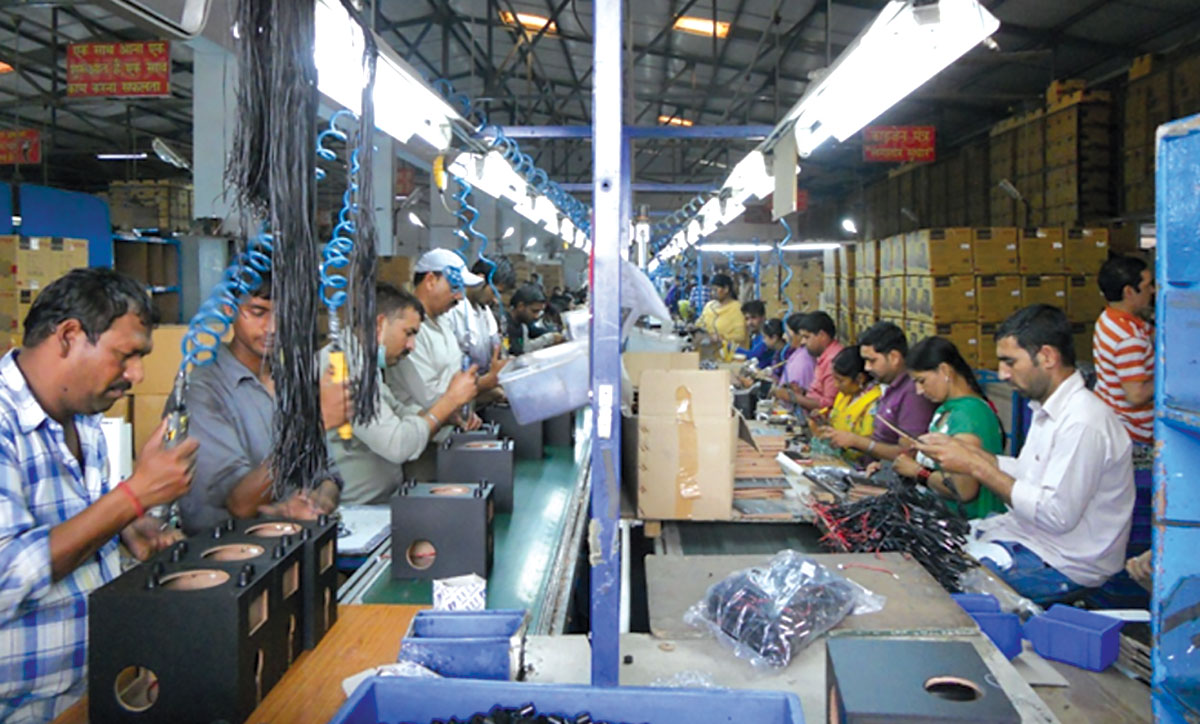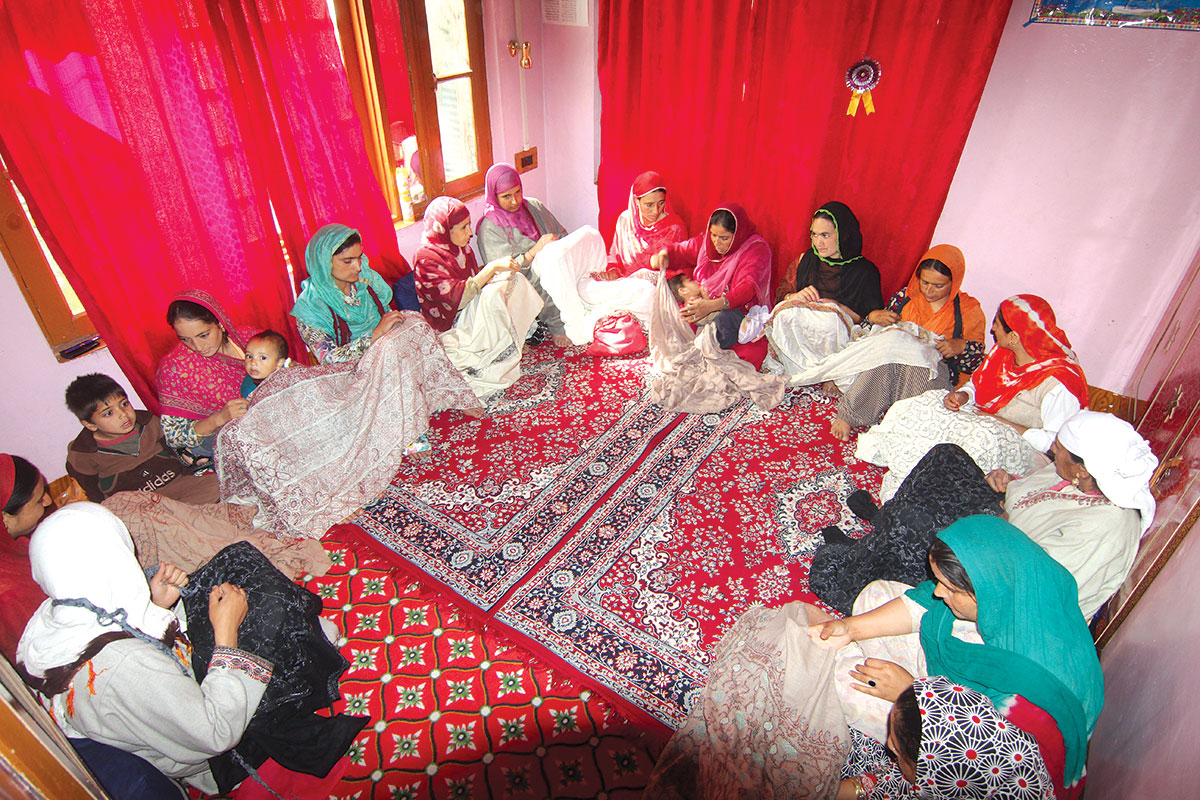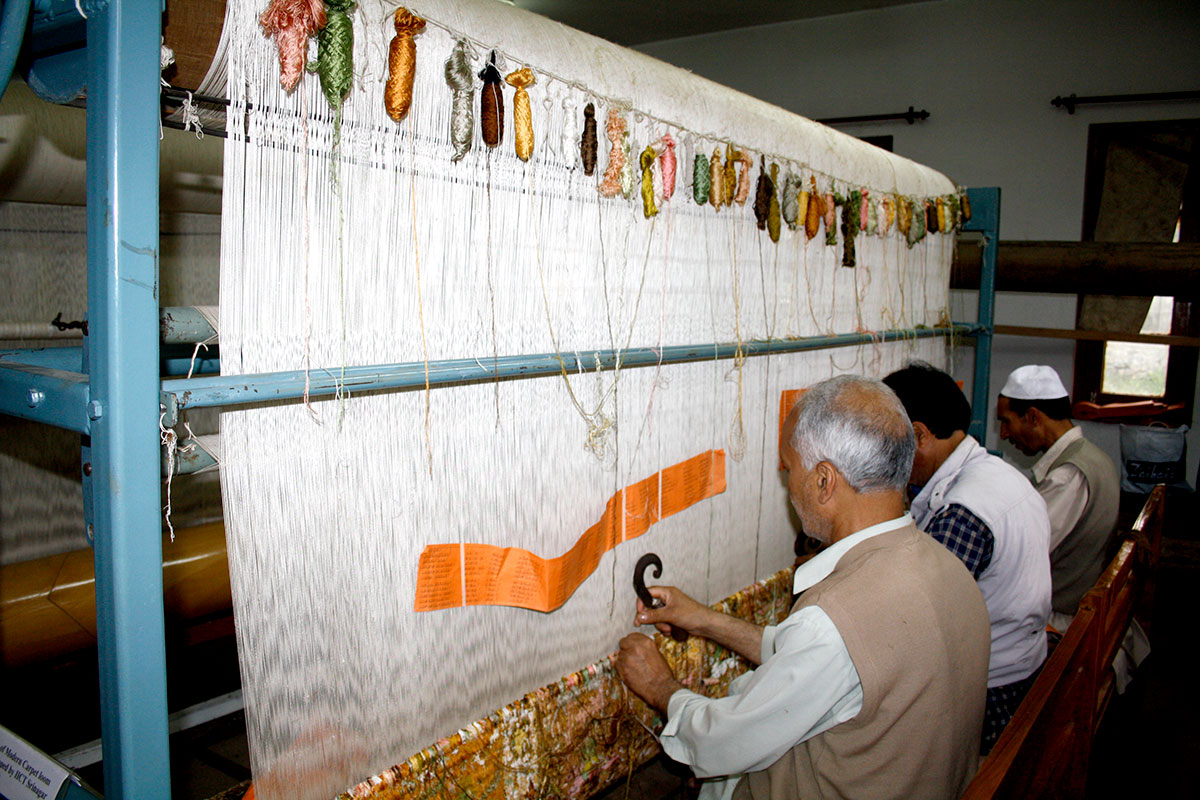Managers of the Rs 4300 crore Provident Fund of the workers in Jammu and Kashmir’s private and public sector were literally yearning for a change that would help improving social security to its members. Now the takeover of the Fund by the Central EPFO will completely change the systems and take the Fund to the next level, reports Masood Hussain

Financial and job security has remained the key element for the people in conflict-ridden and turmoil-hit Jammu and Kashmir to get into the government. State’s location and a small population has always remained a major drawback in creating a vibrant manufacturing sector. Even the best concessions by the government have not been able to reverse the trend.
But Jammu and Kashmir still has an impressive manufacturing sector. In fact the services sector is so vibrant that it has already overtaken the primary and the secondary sectors of the state economy. Despite its small size, the private sector in Jammu and Kashmir still employs more than two-third of what the central and the state government’s employ in the soon-to -be Union Territory. But the workers lacked a better social security.
J&K’s Employees Provident Fund Organisation (EPFO) was the sole authority to regulate and implement a number of state and central labour laws. The statutory organisation with its officials having quasi-judicial powers was set up in 1961 and operated within the Labour and Employment department. Welfare of entire private sector and the state-owned Public Sector Undertakings (PSU) is solely managed by EPFO.
Officials manning the EPFO said that by the end of October 2017, they had registered more than 16000 establishments for the provident fund collection with a cumulative number of around 511000 workers. It excludes thousands of workers working with various private banks, constructions companies and other multi-national companies, which operate in the state. The EPFO has presence in 11 of state’s 22 districts. Most of the registered workers are from the manufacturing sector, mostly from Jammu, Samba and Kathua. Kashmir has less than 1.5 lakh workers registered with the EPFO.
One of the major activities of the EPFO has remained the collection and managing the provident fund that the listed workers and their employees (offering 12 per cent of the basic salary, each) are jointly parking on monthly basis with the organisation. This is the main kitty and the main activity of the EPFO.
“Right now, we have a corpus of Rs 4300 crore with us,” a senior executive of the EPFO said. “Under the law of the land we have to pay 8.5 per cent on interest on the saving to the subscribers.” The entire corpus is converted into FDs and parked with the state government owned J&K Bank.

The kitty yield is changing on almost daily basis as subscribers reclaim their savings or seek advances to manage their affairs. In fiscal 2016-17, officials said they settled as many as 21087 cases – involving both maturity and advances (5375 cases), and it involved an outgo of Rs 156 crore. In the same year, the contributions that have come to the kitty were at Rs 325 crore.
In 2017-18, the EPFO settled 30190 cases that led to the outgo of Rs 224.11 crore. The year also witnessed new contribution of Rs 417 crore coming to the Fund. In fiscal 2018-19, the EPFO settled 28786 cases and disbursed Es 257.82 crore. But the year saw a huge sum of Rs 483 crore coming as the new contribution.
But the Fund was facing a serious crisis. In the last few years, the yield on deposits nosedived as the rate of interest that the banks are offering was steadily falling. It has gone down from 8.45 per cent to 6.25 per cent now.
After losing almost Rs 170 crore till 2017-18, the EPFO finally got into negotiations with the Jammu and Kashmir Bank. “The bank agreed that they will be paying us an interest of 8 per cent, and even with this rate, we are losing 0.5 per cent of interest,” a senior executive said. “We are negotiating an investment pan with the bank and if that is finally taking place, we will get a yield of 10.5 per cent on part of the Fund we have but the deal has not been concluded yet.”
In order to offset the losses, the EPFO has been busy in considering many options to improve the earnings. A committee was actually looking into the issue. An option being strongly supported by various policymakers even before the August 5, was that J&K EPFO can have some relationship with the central EPFO. It was because the Government of India’s EPFO is managing a corpus of Rs 7.5 lakh crores and it has dedicated investment division that helps it make quick decisions and the fund earns better. Central EPFO has a payout rate of 8.6 per cent and has never dropped.
The other major benefit of having an alliance with the central EPFO was that it will broaden the base. Employees of the MNCs, private banks and various companies operating in the state were not registering its employees with the J&K’s EPFO because of limited benefits. Subscribers to the EPFO in J&K also lacked the facility of portability and a universal identity (account number) that dwarfed its status in comparison to other major funds.
The official committee was exploring the options for better earnings that the August 5, decision repealed the law that was governing the J&K EPFO. Now, the decision will have to be taken in coming days after the future of EPFO. “Will it be a separate entity or will be taken over by the Central EPFO remains to be seen,” one executive said. “The fact is that a number of meetings have taken place between the state government and the Central EPFO.”
The EPFO has been implementing the Employees Deposit Link Insurance (EDLI) scheme for the private sector employees. Operational since 2000, the EPFO was taking one per cent of the wages of the employee from the employer as premium on monthly basis. If the worker dies or meets an accident, he used to get a maximum of Rs 75,000.
The EPFO later took the pay-out to Rs 2 lakh. And now the new situation has emerged under which this pay-out will go to Rs 6 lakh.
In 2016-17, EPFO received an amount of 9.98 crore as premium for EDLI. It was Rs 12.83 crore in 2017-18 and Rs 14.35 crore in 2018-19.
What was interesting, however, was that the organisation had linked it to the death. It does not offer anything to an employee if he retires. Where the premium for the insurance that an employer has been paying for the enter service career of the employee goes? There are better schemes in market that will get a substantial sum to the beneficiary on the same premium, in both the cases.
The third major account that the EPFO is maintaining is the administrative charge. It is the most interesting one. Employers in private sector were bound by the now repealed law to pay EPFO five per cent of the total PF outgo in a month to maintain the fund.
This is the main bread and butter of a state organisation that is being run by 120 employees, has quasi-judicial authority on labour issues. In 2016-17, the private sector contributed an amount of Rs 17.65 crore to the EPFO as administrative charges. This tax reached Rs 22 crore in 2017-18 and Rs 25 crore in 2018-19. Interestingly, the EPFO wage bill for a year is Rs 11 crore only. Officials said it has reached Rs 18 crore.
So the sole profit maker was the EPFO itself. It was saving on this count. Right now, the EPFO has Rs 90 crore as saving from this account alone.
This “tax” made EPFO as the only organisation in Jammu and Kashmir that was fully paid, almost in access to its requirements, by the private sector. Ideally the administrative charges on the fund are a penal tax on the employer and should have been borne by the government because it has an inherent vested interest to encourage private sector.

Understanding the crisis, the government in 2015 announced reducing the administrative charges by two per cent. Interestingly, after being passed by the assembly, the EPFO binned the decision.
The other fact of the welfare bogey was interesting. While the government was literally squeezing the private sector, it is enjoying autonomy in denying the same benefit to tens of thousands of employees who are outside the government’s provident fund and pension system. Officials in the EPFO said the J&K government employs nearly 70,000 employees in 22 organisations in which the workers have no welfare benefit. It starts with NRHM and ends with ICDS. The government is skipping getting these casual and contractual employees into the ambit of EPFO because it will add to its costs. Normally the law is that anybody who employs more than 10 workers has to be registered with the EPFO. Some labour department officials have formally fined some top executives for this crisis but they pleaded in the court that the government has not offered them budgetary support for subscribing the policies for their staff.
Now the situation is bound to change. Since the central labour laws would govern the state directly, the central EPFO will extend its schemes to the state.
Now, the employers will pay only 0.5 per cent as administrative costs against the prevalent 5 per cent. For deposit linked, the employers will pay 0.5 percent, half of the rate in vogue.
Under the Central EPFO, now subscribers having 10 year PF contributions will make them entitled to some kind of post-retirement pension. In case of death, the dependents will have some benefits also. Jammu and Kashmir’s EPFO lacked this facility but was keen to ally with the big brother to have it. Central EPFO pays at 8.65 per cent.
“This all is still in fluid,” one EPFO officer said. “The fact is that the law that governed us is repealed. Now it remains to be seen how this organisation will run in coming days, I think by November, we will have a clear idea.”















